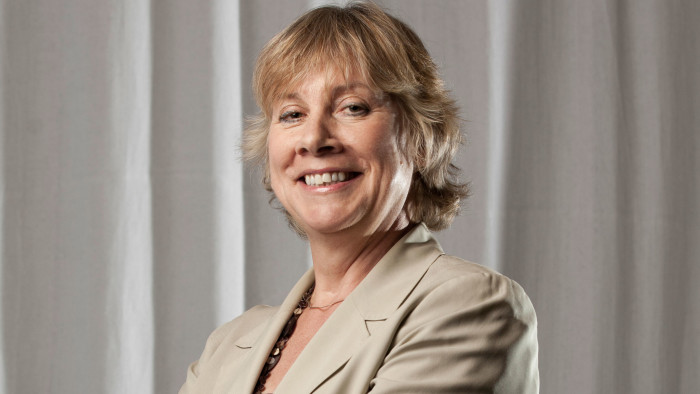From the editor: Flying lessons

Roula Khalaf, Editor of the FT, selects her favourite stories in this weekly newsletter.
In June this year I took part in a conference that focused on how business schools could promote sustainability in their operations and curricula. The conference was in Rio. I was in London.
I felt rather smug about this. There I was, sitting in a meeting room moments from my desk, contributing via a video link as I saw fit. The 300 business school deans and professors, on the other hand, had in many cases flown halfway round the world to participate.
I cannot have been the only one who felt the irony of it all. To offset the carbon emissions from the travel of these 300 delegates, someone, somewhere – possibly in Brazil – would have to plant thousands of trees just to get back to a zero-sum game.
Of course, business schools have never really been noted for practising what they preach. Great communication skills are essential they say, as professors hide away in their offices and conduct esoteric research that no one outside the higher echelons of academia will ever understand.
Manage your workforce to ensure flexibility as demand for your products and services change, say these tenured professors with a job for life.
My favourite business school anomaly is the concept of visiting professors. If you think you might like to work for another business school, you are allowed to go and spend a year and two there and then, if things don’t work out, you can return to your original university. Not a practice most companies would adopt, I fear, at least without being accused of industrial espionage.
But as business becomes more global, the question of how you manage an organisation that operates in myriad countries – and at the same time reduce your impact on the environment – is clearly an issue. It is particularly important for executive MBA students because not only do many of these seasoned managers need to travel globally as part of their job, but their degrees are predicated on them travelling to different locations to study.
Going with the grain
Ceibs, the Shanghai business school, began planting its own forest back in 2010 to further its carbon-neutral credentials. In 2012 the school planted 1,000 trees.
The obvious answer is technology, and this is clearly something on which most business schools are now focusing. The Kenan-Flagler school in North Carolina is enrolling a new class every quarter on its MBA@UNC programme, and there are now 250 enrolled participants, says dean Jim Dean, even though the programme was only launched a little over a year ago.
The rationale behind the Kenan-Flagler launch was much the same as that behind the launch of the original Global Executive MBA programme by neighbouring Duke University more than 15 years ago: that North Carolina is not a natural “go-to” destination for the world’s top executives. So if the executives won’t come to the business school …
The thing is, Kenan-Flagler has discovered that demand for the online programme has taken off not only in its predicted target groups – military personnel, people working in remote locations and so on – but also among people it had never predicted. While for some an online MBA is a necessity – it is online or nothing – for others it is a matter of convenience or teaching style.
Other prestigious US business schools are also waking up to this change in the consumer perception of online courses, which for so long have had a reputation of being cheap and low quality. What Kenan-Flagler has clearly shown is that the reputation and brand of the business school are the critical factors.
Just before the Rio meeting I had two visits from US deans who worked in the same city. One came in the morning, the other in the afternoon. The first said that in the next few months his school would be launching an MBA on much the same lines as the Kenan-Flagler one. In the afternoon the second dean said exactly the same. For a moment I thought we might have been in Groundhog Day, the film in which a Pittsburgh TV weatherman finds himself in a time loop.
But no, even though the two schools operated in one of the world’s most global cities, they spoke with one voice on the value of such a programme.
None of which answers the questions about the top executive MBA programmes. Can the act of travelling to different locations for assignments and company visits be replicated online? A small amount around the edges perhaps, but however much technology can mimic personal interaction in a classroom setting, it is hard to see how it can do so outside the classroom.
Technology, of course, has its own limitations, as I discovered to my cost at the Rio conference. Just as I was about to deliver a pithy final remark, the video link broke. Or at least, that’s what the organisers in Rio told me.
Comments